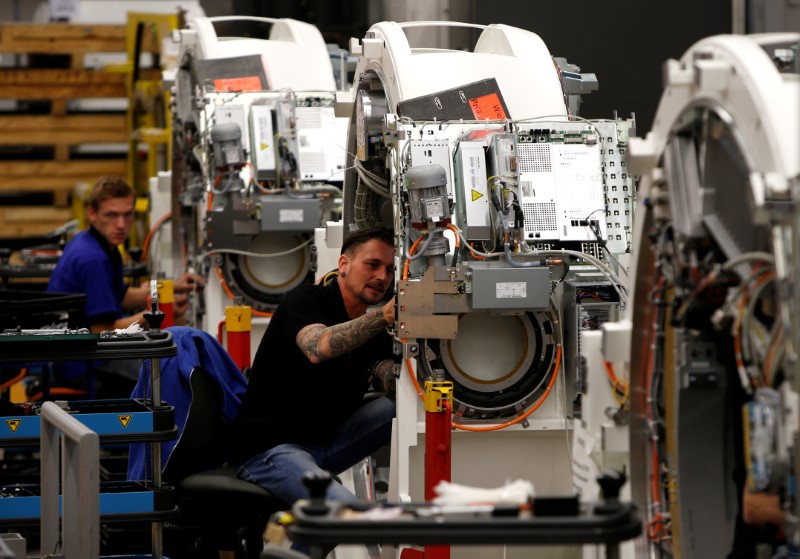By Michael Nienaber
BERLIN (Reuters) - German business morale brightened unexpectedly in February as managers' assessment of their business situation reached its highest level in more than five years, supporting expectations that Europe's biggest economy got a robust start in 2017.
The figures, published by the Ifo institute on Wednesday, were another sign that growth in the euro zone is picking up despite increased political risks, such as France's coming election and uncertainty about the trade policies of U.S. President Donald Trump.
"It seems the protectionist plans of Trump can't unsettle companies in the long term," Bankhaus Lampe economist Alexander Krueger said, adding that the Ifo index pointed to strong economic growth in the first quarter.
The Munich-based Ifo institute said its business climate index, based on a monthly survey of some 7,000 companies, rose to 111.0 from an upwardly revised reading of 109.9 in January. That beat the Reuters consensus forecast for a dip to 109.6.
That assessment of the current business situation reached its highest level since August 2011. Companies also expressed greater optimism about the months ahead.
Neither Trump's policies nor Britain's planned departure from the European Union was hurting the German economy or the mood in corporate boardrooms, Ifo economist Klaus Wohlrabe said.
"The German economy is in surprisingly strong shape in politically uncertain times," he said.
The survey showed morale improved in manufacturing and wholesaling. Construction and retailing managers were less upbeat.
Ifo's figures came after a survey among German purchasing managers showed on Tuesday that private-sector growth picked up in February to its highest level in nearly three years, driven by humming factories.
In addition, reports earlier this month showed German industrial orders posted their biggest monthly increase in around 2 1/2 years, driven mainly by higher demand at home and abroad for goods needed in production.
The German economy grew by 1.9 percent in 2016, the strongest rate in half a decade, driven by soaring private consumption, increased state spending on roads and refugees and rising investment in housing.
For this year, the German government forecasts a weaker growth rate of 1.4 percent because there will be fewer workdays and exports are likely to rise less strongly than imports.

The Bundesbank said in its latest monthly report that the German economy will stay on a strong footing in the coming months thanks to high industrial and construction activity.